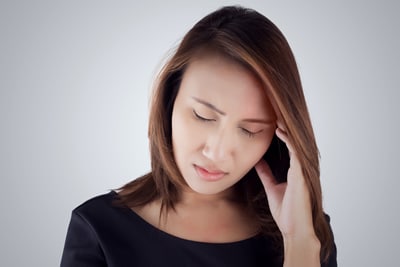Supportive and professional therapy for anxiety designed for you
Supportive and professional therapy for anxiety designed for you
Blog Article
Discovering Different Strategies in Coaching for Stress And Anxiety Problem for Long Lasting Adjustment
When dealing with stress and anxiety disorders, it's crucial to discover a variety of therapy techniques. Each method supplies distinct insights and tools to help you handle your signs effectively. You could locate that incorporating strategies can yield the very best outcomes. Comprehending the subtleties of these approaches is key to cultivating lasting change. Suppose the ideal combination could launch a new level of emotional health for you?
Recognizing Anxiousness Conditions: A Brief Summary
Anxiety conditions, which impact millions of people worldwide, can considerably affect day-to-day live. You might experience overwhelming sensations of anxiety or fret that seem irrepressible. These sensations can lead to physical signs like a racing heart, sweating, and even wooziness. Common kinds of stress and anxiety conditions consist of generalized anxiousness condition, panic attack, and social anxiety condition. Each has distinct indicators, however they all share a propensity to interrupt your regular and relationships.Understanding the origin of your stress and anxiety is essential. It might come from genes, mind chemistry, or life experiences. Recognizing your triggers can help you handle your actions better. It is necessary to bear in mind that you're not the only one in this struggle. Lots of people deal with comparable obstacles, and seeking help is a solid action towards feeling much better. By learning more about anxiousness problems, you're currently on the course to understanding and handling your problem better.
Cognitive-Behavioral Therapy: Challenging Negative Idea Patterns
In Cognitive-Behavioral Therapy, you'll start by recognizing the adverse thought activates that add to your anxiousness. As soon as you recognize these ideas, you'll service replacing them with even more positive options. With each other, you'll develop efficient coping approaches to help manage your stress and anxiety in daily scenarios.
Recognizing Unfavorable Thought Triggers

Identifying the specific triggers behind your unfavorable thoughts can be crucial in taking care of anxiousness when you experience minutes of distress. Start by paying focus to scenarios that prompt feelings of worry or anxiety. Is it a crowded space, a future target date, or a conversation with specific individuals? Jot down these circumstances in a journal. This will certainly assist you recognize patterns in your reasoning. Likewise, notice physical feelings that accompany your negative ideas, like a racing heart or tightness in your breast. By identifying these triggers, you acquire insight right into what's fueling your stress and anxiety. Recognizing these connections is the primary step in challenging those thoughts and inevitably regaining control over your emotional responses.
Replacing Thoughts With Positives
Testing adverse idea patterns is an important step in changing your state of mind and decreasing anxiousness. You might commonly discover yourself caught in cycles of insecurity or devastating thinking. Rather than allowing these ideas dictate your sensations, practice replacing them with positive affirmations or reasonable choices. When you think, "I can not handle this," shift it to, "I can take care of challenges one action at a time." This straightforward modification can significantly impact your mood. Consistently recognizing and responding to these unfavorable thoughts aids create a healthier interior dialogue. Bear in mind, it takes some time and effort, but continually practicing this technique can cause lasting change, equipping you to face stress and anxiety with restored confidence and strength.
Building Coping Strategies With Each Other
Changing negative ideas is just the beginning of handling anxiousness successfully. To produce lasting adjustment, you need to develop coping strategies that encourage you. Cognitive-Behavioral Therapy (CBT) helps you recognize and test those purposeless thought patterns. With each other, you and your therapist can explore just how these ideas influence your feelings and behaviors.Start by developing practical techniques, like journaling or mindfulness exercises, that enable you to confront anxiety head-on. When you encounter your concerns gradually, you'll learn to respond in different ways.

Mindfulness and Acceptance-Based Approaches: Growing Present-Moment Recognition
As you navigate the intricacies of anxiousness, incorporating mindfulness and acceptance-based methods can significantly improve your ability to cultivate present-moment recognition. By concentrating on the below and currently, you'll discover that you can observe your ideas and sensations without judgment (Counseling services for anxiety). This method aids you acknowledge your stress and anxiety without really feeling bewildered by it.Engaging in mindfulness workouts, such as deep breathing, body scans, or assisted reflections, enables you to ground on your own in your current experience. Acceptance-based methods encourage you to welcome your feelings instead of combat against them. When you accept your sensations, they lose their power over you.Incorporating these techniques into your everyday routine can change exactly how you reply to anxiety. You'll establish resilience and discover to navigate demanding scenarios with better simplicity. Eventually, cultivating present-moment recognition lays the foundation for lasting modification, empowering you to lead a much more fulfilling life
Exposure Treatment: Facing Concerns Slowly
Direct exposure treatment assists you challenge your fears in a gradual means, making it much less frustrating. You'll discover techniques to face anxiety-provoking circumstances detailed, while also building coping approaches to manage your responses. This approach encourages you to take control and decrease stress and anxiety with time.
Progressive Exposure Techniques

When encountering stress and anxiety, slowly confronting your fears can be a powerful method to restore control. This strategy, recognized as steady direct exposure, entails gradually revealing on your own to the situations or objects that trigger your anxiousness. Begin with much less challenging circumstances and gradually work your way approximately even more challenging ones. For circumstances, if you're terrified of public talking, you might start by speaking in front of a mirror, then progress to sharing thoughts with a pal, and eventually address a little group. Each action assists desensitize you to the concern, constructing your confidence with time. Remember, it's vital to pace yourself and celebrate little triumphes as you move via this procedure, enhancing your capability to take care of anxiousness properly.
Building Coping Approaches
Structure effective coping approaches is essential for managing stress and anxiety, specifically as you challenge your fears progressively - Counseling services for anxiety. One powerful technique is direct exposure therapy, where you start by encountering your anxieties in a regulated fashion. Start with much less frightening scenarios and slowly function your method as much as more challenging scenarios. This gradual exposure assists desensitize you to anxiousness sets off, making them much less overwhelming.Incorporate leisure techniques, such as deep breathing or mindfulness, to relax your mind during exposure. Track your development, celebrating tiny success in the process to boost your confidence. Bear in mind, it's okay to take your time; the objective isn't perfection however constant enhancement. By developing these techniques, you'll encourage on your own to browse stress and anxiety and accept life a lot more completely
Psychodynamic Treatment: Uncovering Origin of Stress And Anxiety
Psychodynamic therapy checks out the subconscious mind, exposing the origin of your anxiety. By examining your ideas, feelings, and past experiences, this method helps you uncover underlying problems and unresolved problems that may add to your present anxiousness. You'll deal with a therapist to examine childhood experiences, relationships, and psychological patterns that form your reactions today.As you obtain understanding into these much deeper layers of your subconscious, you'll start to recognize exactly how past occasions affect your existing habits. This understanding can bring about catharsis, permitting you to process feelings you might have suppressed.Through the restorative partnership, you can also determine defense reaction that may have established over time, using a clearer course to transform. Ultimately, psychodynamic therapy furnishes you with the devices to resolve your anxiousness at its core, promoting long lasting transformation in your psychological wellness.
Holistic and integrative Approaches: Combining Techniques for Greater Efficiency
Incorporating different therapeutic techniques can boost your trip towards taking care of anxiousness better. By combining aspects from cognitive-behavioral treatment, mindfulness practices, and holistic approaches, you can create a personalized approach that resolves your special requirements. You could use cognitive-behavioral techniques to test negative thought patterns while incorporating mindfulness exercises to ground on your own in the present moment.Additionally, discovering holistic practices such as yoga exercise or reflection can advertise leisure and decrease anxiousness signs and symptoms. This mix allows you to establish greater self-awareness and resilience.Experimenting with these diverse techniques can assist you find what resonates most with you. Remember, it has to do with finding a harmony that works, instead of sticking to a single method. This integrative method not just supplies instant relief however additionally promotes lasting abilities for handling stress and anxiety, empowering you to recover control over your life.
The Duty of Support Equipments: Building Strength Through Connection
While it might appear that managing anxiety is a solitary trip, having a solid support system can play an essential duty in your durability. Surrounding yourself with understanding good friends, family, or support system produces a risk-free room where you can honestly share your experiences and sensations. When you get in touch with others, you advise on your own that you're not the only one in this struggle.These relationships use motivation and can offer practical coping techniques that have helped others. It's also an opportunity to obtain viewpoint; buddies can help you see situations in a different way, reducing feelings of isolation.Moreover, emotional assistance fosters a sense of belonging, which can significantly alleviate stress and anxiety symptoms. By leaning on your support group, you can develop strength and take on difficulties more successfully. Keep in mind, reaching out for aid signifies toughness, and it can make all the distinction in your trip towards taking care of stress and anxiety.
Regularly Asked Inquiries
What Are the Common Symptoms of Anxiety Conditions?
You might experience uneasyness, exhaustion, trouble focusing, irritability, muscle mass tension, and sleep disturbances. Physical symptoms can include rapid heartbeat, sweating, and trembling. Recognizing these signs early can assist you seek proper assistance and therapy.
Exactly How Lengthy Does Treatment Generally Last for Anxiety Conditions?
Treatment for anxiousness disorders usually lasts anywhere from a couple of weeks to several months. It actually relies on your individual requirements, progression, and the techniques your specialist uses to assist you manage your stress and anxiety successfully.
Can Medicine Be Utilized Together With Therapy for Anxiety?
Yes, medication can absolutely be used alongside therapy for stress and anxiety. Combining both approaches frequently improves treatment performance, aiding you take care of signs while exploring underlying issues with counseling (Counseling services for anxiety). Constantly consult your doctor for personalized advice
Are There Self-Help Techniques for Managing Stress And Anxiety?
Yes, there are a number of self-help methods for taking care of anxiousness. You can exercise mindfulness, participate in regular workout, maintain a balanced diet plan, develop a routine, and make use of deep breathing methods to aid reduce anxiety symptoms efficiently.
Just how Do I Know if I Need Expert Assistance for Anxiety?

Report this page